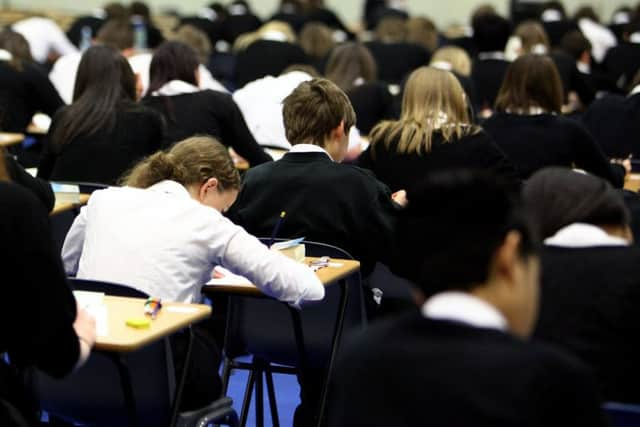Willie Rennie: Higher taxes can be force for good
Over those two decades, we have accrued great powers and responsibilities so that Holyrood is now one of the most powerful devolved parliaments in the world.
Previously Holyrood set a budget based on a total income controlled by Westminster. But that has changed as we now raise around half of the money we spend. We have greater flexibility to do things differently if we choose. This was an important objective for the Liberal Democrats in the Smith Commission, which was established following the independence referendum.
Advertisement
Hide AdAdvertisement
Hide AdThese powers were won thanks to the efforts of the Liberal Democrats which makes our party well placed to make the best use of them.


As the Conservatives seek to frame the debate on taxation on the impact on taxpayers alone, it is incumbent on a progressive party like the Liberal Democrats to explain the benefits of a modest increase in taxes.
Moderate, progressive taxation can be a force for good. It’s about collective action to address an issue of common interest.
We do not believe that taxation need be punitive. It is a force for good if applied fairly and for a clear purpose.
The Conservatives tend to reject collective action and favour a small state where the instinct is to cut tax and reduce public spending no matter the consequences.


Some say we receive more funding per head than in England and that more is not required. But no one challenges that Scotland has always had special funding needs based on poverty levels and rurality.
No one is making the case to abandon the Barnett Formula because everyone recognises that we need the funds just to keep up with elsewhere in the UK. So it is perfectly reasonable to seek a modest increase in taxation in Scotland to raise more funds for Scotland.
People need to know what they will get for their investment. That is why we set out a proposal to increase taxation with a specific purpose of transforming the education system. It’s a transaction, a deal with the Scottish people.
Advertisement
Hide AdAdvertisement
Hide AdFrom having one of the best education systems in the world it has tumbled down the rankings in the last decade and is now seen as just average.
One of the biggest revolutionary steps that we can take and the best educational investment that we can make is to provide an early education for children. Investment before the age of three can have life-long effects. That’s why we want to provide 30 hours a week of nursery care for two-, three- and four-year-olds – to give many young children the head start they need to overcome the circumstances of their birth. We need to invest in buildings and in the training of staff to be able to fill those nurseries. Those are big expenditure items, but they will have a transformational effect on education that will benefit the economy for the long term.
Schools in Scotland are not what they use to be. They should be the pride of the nation once again. That only happens with new investment to reverse the decline of the last decade. That’s why we argued for the Pupil Premium concept – now called the Pupil Equity Fund in Scotland – which was pioneered by Liberal Democrats elsewhere in the UK. It targets money to those pupils who need it most.
Colleges as well should once again be the vibrant learning environment for skills and training; confident that they can meet the needs of business and employers. Education should be for all ages and all backgrounds. It should be where women can pick up careers again.
This is why there is a bold case for taxation. Just one penny would raise £500 million for education in Scotland. And when it comes to investing in education, it is so much more than just putting more money in our schools. It is an investment in the future, in the talents of people so that they can be all they can be. It is essential to build a high-wage, high-skill economy.
We are not in favour of automatically increasing or cutting tax at every opportunity. It is not a tax rise to punish but to raise the funds we need to provide services on a common front. We recognise that it is about a balance between public and personal expenditure, and about the ability of people to afford to live their daily life and the ability of the Government to afford to provide the services that we all need and depend on.
A tax rise is not an indication of more to come but a contract with people to fix a problem and to invest in a solution. An investment that liberates people to be all they can be, but also invests in our economy so talented people with skills can create economic opportunities, growth and wealth.
A tax rise should never be seen in isolation. A tax rise should be seen to have a purpose. It’s a virtuous cycle that benefits not just the students and pupils but wider society too. It is a liberal approach that invests in and empowers the individual.
Willie Rennie is MSP for North-East Fife and leader of the Scottish Liberal Democrats